Imagine being on the cusp of greatness, only to have it all snatched away because of blind obedience. How would you feel? The ancient Indian epic, Mahabharata, features the heart-wrenching tale of Eklavya, a talented archer whose life took an unfortunate turn due to authority bias. This story provides an important management lesson in decision-making from the Mahabharata.
Before we learn more about Eklavya, let’s find out more about authority bias. What’s authority bias?
The Invisible Puppet Master: Authority Bias
🧠 Authority bias is the tendency to overvalue the opinions or decisions of those in positions of power, often leading to unquestioning obedience. We tend to obey an authority, especially when we are uncertain, supervised, or when people around us are doing the same. We are most easily influenced by credible authorities, those we see as both knowledgeable and trustworthy.
Simply put Authority bias is like a magnet 🧲, drawing us towards the opinions and decisions of those in power, even if they’re not always the best choice or the most accurate, simply because we’re attracted to their authority and status.

When you think of the long and gloomy history of man, you will find more hideous crimes have been committed in the name of obedience than have ever been committed in the name of rebellion.
Charles Percy Snow
Charlie Munger, in his famous speech, The Psychology of Human Misjudgments, mentions:
You got a pilot and a co-pilot. The pilot is the authority figure. They don’t do this in aeroplanes, but they’ve done it in simulators. They have the pilot do something where the co-pilot who’s been trained in simulators for a long time. He knows he’s not to allow the plane to crash. They have the pilot do something where an idiot co-pilot would know the plane was gonna crash, but the pilot’s doing it, and the co-pilot is sitting there, and the pilot is the authority figure. 25% of the time, the plane crashes. This is a very powerful psychological tendency.
Charlie Munger
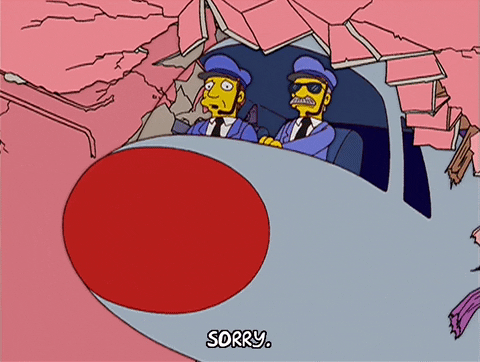
The Milgram Experiment: Unveiling the Depths of Authority Bias
In the early 1960s, psychologist Stanley Milgram conducted a series of experiments1You read the full research here – Milgram, S. (1963). Behavioural Study of Obedience. The Journal of Abnormal and Social Psychology, 67(4), 371–378. https://doi.org/10.1037/h0040525 to understand the extent to which ordinary people would follow orders from authority figures, even when it involved inflicting harm on others. They marketed the experiment in a newspaper, “We will pay you $4.00 for one hour of your time”2The book, Humankind, talks about the Milgram experiment and authority bias in detail.
The experiment involved a “teacher” administering electric shocks to a “learner” every time they answered a question incorrectly. Unbeknownst to the teacher, the learner was an actor, and no real shocks were delivered. However, the teacher believed they were genuinely harming the learner due to the authority figure, an experimenter dressed in a lab coat, instructing them to continue.
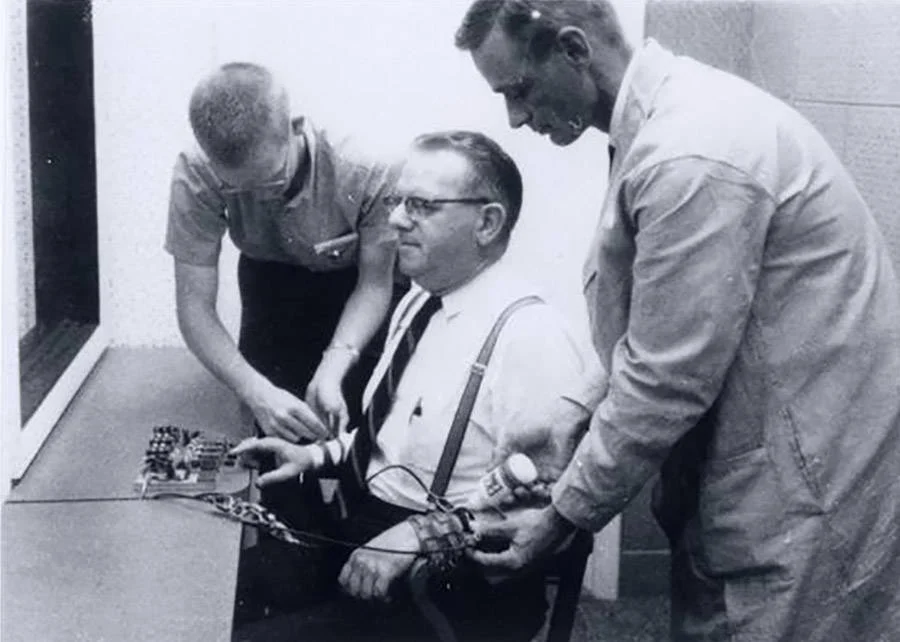
The shocks started small, a mere 15 volts. But each time the learner gave a wrong answer, a man in a grey lab coat directed the teacher to raise the voltage. From 15 volts to 30. From 30 volts to 45. And so on and so forth, no matter how loudly the learner in the next room screamed, and even after reaching the zone labelled ‘DANGER: SEVERE SHOCK’. At 350 volts the learner pounded on the wall. After that, he went silent.
So, did the “teacher” (the volunteer) continue giving shocks to a person they didn’t know because another authoritative stranger wearing a lab coat instructed them to do so? 😳
The Shocking Findings: Unraveling the Power of Authority Bias
Milgram’s study revealed that a staggering 65% of participants were willing to administer the highest level of electric shocks, despite the learner’s pleas to stop. This finding demonstrated the powerful influence of authority bias, as participants were more likely to obey orders from an authority figure, even if it contradicted their moral values.
Here’s the psychology behind the experiment and authority bias:
💡 Ordinary people, simply doing their jobs, and without any particular hostility on their part, can become agents in a terrible destructive process. Moreover, even when the destructive effects of their work become patently clear, and they are asked to carry out actions incompatible with fundamental standards of morality, relatively few people have the resources needed to resist authority.
Apparently, two-thirds of those ordinary dads, pals and husbands were willing to electrocute a random stranger. Why? Because someone told them to.
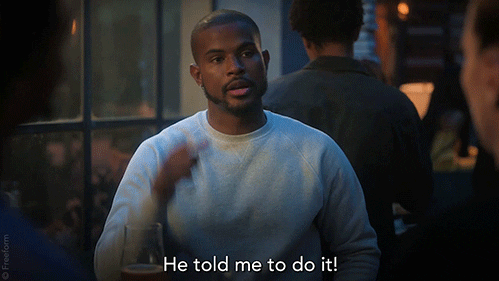
Appreciating that despite its groundbreaking insights into authority bias, the Milgram experiment has faced criticism over the years. Some argue that the study’s design may not accurately reflect real-life situations, as participants were placed in an artificial environment. The perpetrators (“teachers”) believed they were on the right side and only wanted to help in the experiment. Others have questioned the external validity of the study, pointing out that the sample consisted mainly of American men, which may limit the generalizability of the findings.
Despite these criticisms, it’s essential to recognize that authority bias doesn’t solely manifest itself in extreme situations like the Milgram experiment.
Authority Bias in Everyday Life
Here are some other examples where you can see authority bias in real life:
🌟 Celebrity Endorsements: We often trust and buy products endorsed by our favourite celebrities, even though they may not be experts in the fields related to those products. Their status and fame make us believe in the product’s quality and effectiveness. Authority bias is used extensively in marketing.

💊 Doctor’s Orders: When prescribed medication or advised to undergo a particular treatment, most patients follow their doctor’s advice without question. Even if they have doubts, the doctor’s authority makes it difficult to ask questions or seek a second opinion.
🏢 The Hierarchy at Work: In the workplace, employees tend to follow their manager’s decisions, even if they disagree or have better ideas. This is because the manager holds authority over them, and challenging authority may be seen as insubordination or disrespect.
👪 Parental Decisions: Parents often make decisions for their children, and children, in turn, accept these decisions based on the authority that their parents have. Sometimes, this can lead to missed opportunities or following a path that isn’t ideal for the child’s interests or abilities.
📰 News Sources: People tend to trust information coming from reputed news sources, even if the information may be biased or incomplete. The authority of these news organizations makes it difficult for individuals to question or verify the facts presented. Recently, the news channels have started inviting “experts” in fields on the news channels adding to misinformation caused due to authority bias.

Recognizing authority bias in everyday life can help us make more informed decisions and break free from the unconscious influence of authority figures. By questioning the validity of information and seeking alternative perspectives, we can become more critical thinkers and take control of our choices. 🧠
Now that we know about authority bias, let’s get back to Mahabharata3My favourite translation of Mahabharata is by C. Rajagopalachari. and the story of Eklavya.
The Unshakable Devotion of Eklavya: Authority Bias in Mahabharata
Eklavya, a young boy from a lower caste, was determined to master archery. He approached Drona, a renowned guru teaching the Pandava and Kaurava princes, and requested to become his student.
In those days, it was customary for a teacher of the royal family to exclusively instruct the state’s art to its members. It was forbidden to make anyone as powerful as the princes for the safety of the region. In fact, Drona had promised Arjuna, the Pandava prince, that he would make him the greatest archer in the world!
So, Drona turned Eklavya down, citing his low social status and his own adherence to dharma as the reasons.
Undeterred, Eklavya constructed a clay statue of Drona and practised archery in the forest, using the statue as his inspiration. Over time, Eklavya’s skill grew to such heights that he even surpassed Arjuna, one of Drona’s star students. 🏹

The Discovery of Eklavya’s Incredible Talent
Once, a wild dog barked furiously, disturbing Eklavya’s concentration during practice. Angered, Eklavya swiftly filled the dog’s mouth with seven arrows in quick succession, silencing its barking without injuring it. The Pandava princes were astonished by this incredible feat of archery.
Searching the forest, they discovered a dark-skinned man dressed in black, his body smeared with filth and hair in entangled locks.

Arjuna approached Eklavya and inquired, “Who taught you archery?”
“Dronacharya,” Eklavya replied. Arjuna seethed with anger.
He confronted Drona, accusing him of betrayal and deception. “What have you done? You were supposed to teach me exclusively, but you taught this man and made him more skilful than me.4Here’s the story of Eklavya by Sri Sri Ravi Shankar..”
Upon learning of Eklavya’s prowess, Drona was both amazed and concerned that he could outshine Arjuna.
Deviously, Drona demanded Eklavya’s right thumb as “Guru Dakshina” or the teacher’s fee, fully aware that this would cripple the young archer’s skills.
Without hesitation, Eklavya severed his thumb and offered it to Drona, demonstrating unwavering devotion and obedience. In an instant, Eklavya’s dreams of becoming the greatest archer crumbled.

The Eklavya and Drona Saga: A Lesson in Authority Bias
The common perception is that Eklavya, who learned the skill independently and excelled at it, was forced to relinquish it for Dronacharya’s vested interests. It also can be interpreted as a lesson in humility and self-sacrifice, as Eklavya willingly gave up his skills out of respect for his guru, despite the injustice he faced.
In this story, Dronacharya is often seen as cruel and self-centred. Also, Drona’s decision may have been driven by his commitment to protecting the kingdom and ensuring that Arjuna could fulfil his role as a warrior prince. Drona may have felt obligated to uphold his promise to Arjuna, prioritizing the bond between a teacher and a disciple. This came at Eklavya’s expense.
Despite counterarguments, Eklavya and Drona’s story powerfully illustrates authority bias and its consequences. It teaches us the importance of questioning authority for informed decision-making. Eklavya’s blind obedience to Drona’s unfair demand reveals the strong influence of authority bias on our choices. His submission cost him his future and dreams. This prompts the question of whether a different path could have been chosen without the sway of authority bias.
The Two Sides of Authority Bias: A Balancing Act
While authority bias has downsides, we must also acknowledge that it can serve a purpose in certain situations. For instance, in emergencies or high-stress environments, following orders from experts can save lives and maintain order.
The “Unlikely Champion” Razor: Using Authority Bias to Your Advantage
As is the case with any bias, understanding and being aware of its existence is the first step. But, you can also use authority bias to your advantage.
Here’s a thought experiment from the famous Nassim Taleb:
Say you had the choice between two surgeons of similar rank in the same department in some hospital. The first is highly refined in appearance…The second one looks like a butcher…
Now, if you had to choose between the two. Who will you choose? 🤔
The majority of people will choose a surgeon with a refined appearance. Why? Because authority bias has a strong effect. We are most easily influenced by those we see as both knowledgeable and trustworthy.
🧠 Introducing the “Unlikely Champion” Razor: If forced to choose between two options of seemingly equal merit, choose the one that doesn’t conform to expectations.

💡 Why? The less conventional option has likely had to surmount greater obstacles to achieve its current status compared to the one that blends in seamlessly.
To apply the “Unlikely Champion” Razor, first, identify the options available to you. Then, assess their merits objectively, disregarding stereotypes or appearances. Finally, choose the option that seems to have overcome the most hurdles, as they’re likely more resilient, adaptable, and innovative.
The “Unlikely Champion” Razor encourages you to embrace the unconventional and defy authority bias. By doing so, you can make more informed decisions and potentially uncover hidden gems that would otherwise go unnoticed.
Overcoming Authority Bias: Strategies for Clearer Decision-Making
So, apart from the “Unlikely Champion” Razor, how can we avoid the authority bias trap? Consider these strategies:
🕵️♂️ Question the source: Authority figures can err. Analyze their guidance using thinking tools or choices and ensure alignment with your values and objectives. Evaluate reliability, credibility, sensibility, and potential bias.
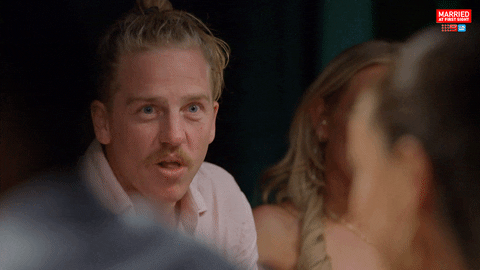
🧐 Seek diverse perspectives: Consult others with different backgrounds and experiences to gain a broader understanding. Steer clear of cargo cult thinking and avoid blindly imitating behaviours.
🦉Trust your instincts: If something seems amiss, pause and reassess the situation. Recognize the difference between genuine and false experts. Remember, authority bias is used widely by salesmen and marketers. Avoid the shovel-sellers.
🧘♀️Develop self-awareness: Understand your biases and work on being more aware of their influence on your decision-making. As I have mentioned in my article on stoic decision-making, “see things as they are, not as we’ve made them in our minds.”
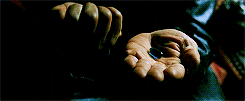
⚖️ The key is to strike a balance between respecting authority and strengthening our ability to think critically.
Taking Charge of Our Decision-Making 🌟
The story of Eklavya and Drona teaches us the importance of questioning authority and being mindful of authority bias. It’s another cognitive bias that affects our decision-making. As we strive to make better decisions, let’s remember:
Unthinking respect for authority is the greatest enemy of truth.
Albert Einstein
More often than not, the truth is revealed when authority is questioned.
Footnotes:
- 1You read the full research here – Milgram, S. (1963). Behavioural Study of Obedience. The Journal of Abnormal and Social Psychology, 67(4), 371–378. https://doi.org/10.1037/h0040525
- 2The book, Humankind, talks about the Milgram experiment and authority bias in detail
- 3My favourite translation of Mahabharata is by C. Rajagopalachari.
- 4Here’s the story of Eklavya by Sri Sri Ravi Shankar.




